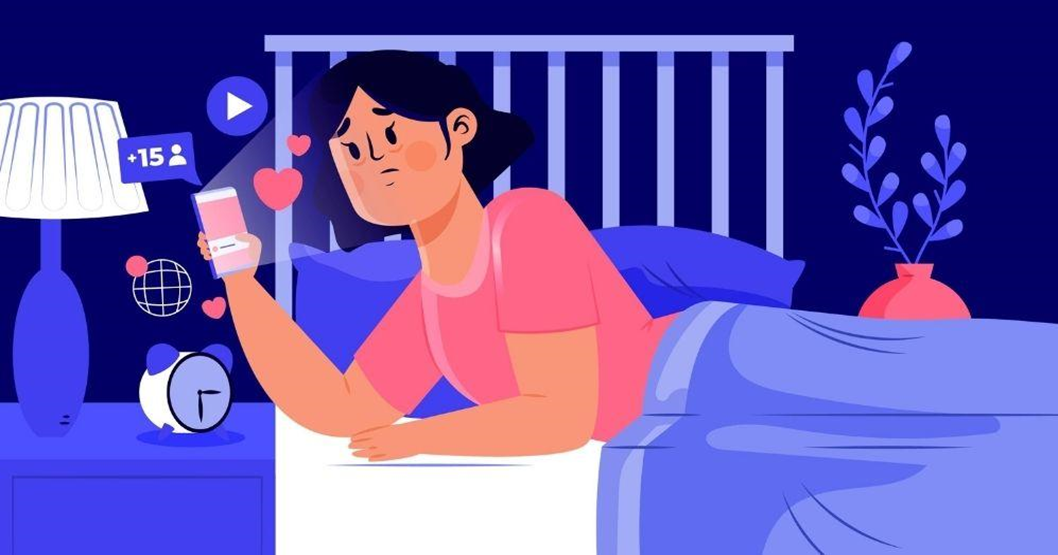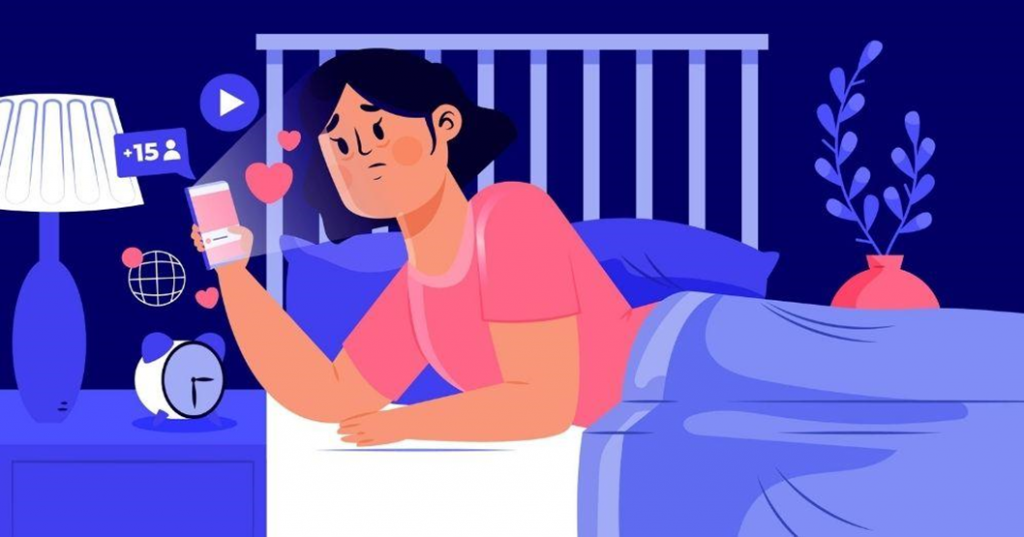In a world where 24/7 connectivity is the norm, the impact of technology on our sleep patterns cannot be overlooked. From the glowing screens of our smartphones to the constant buzz of notifications, the ways in which technology infiltrates our bedrooms can have a profound effect on the quality of our rest. Let’s delve into how these modern conveniences may be disrupting our sleep and explore potential solutions to ensure a more restful night’s slumber.

The Impact of Blue Light Emitted by Screens on Your Circadian Rhythm
The blue light emitted by screens, such as those on our smartphones, laptops, and tablets, can have a significant impact on our circadian rhythm. This type of light is known to suppress the production of melatonin, the hormone that regulates sleep. As a result, exposure to blue light before bedtime can disrupt our natural sleep-wake cycle, making it harder to fall asleep and stay asleep throughout the night.
Furthermore, prolonged exposure to blue light can lead to other health issues beyond just sleep disturbances. Research has shown that excessive screen time can contribute to eye strain, headaches, and even increased risk of certain eye diseases. It’s important to be mindful of our screen usage, especially in the hours leading up to bedtime, in order to protect our overall well-being.
To mitigate the negative effects of blue light on our circadian rhythm, there are a few simple steps we can take. Try using blue light filters or apps that automatically adjust the screen color temperature Try to limit screen time at least an hour before bedtime Create a relaxing bedtime routine that does not involve screens Incorporate dim, warm lighting in your bedroom to signal to your body that it’s time to wind down By being mindful of our technology usage and its impact on our sleep, we can prioritize our health and well-being in the digital age.
The Role of Technology in Disrupting Your Sleep Patterns
Technology has become an integral part of our daily lives, but it also plays a significant role in disrupting our sleep patterns. The blue light emitted from screens such as smartphones, tablets, and computers can interfere with the production of melatonin, the hormone that regulates sleep. This disruption can make it harder for individuals to fall asleep and stay asleep throughout the night.
Additionally, the constant notifications and alerts from devices can keep our brains stimulated, making it difficult to unwind and relax before bedtime. The temptation to check emails, social media, or watch one more episode of a favorite show can lead to staying up later than intended, further impacting the quality of sleep.
One way to combat the negative effects of technology on sleep is to create a technology-free bedtime routine. This could include activities such as reading a book, taking a warm bath, or practicing relaxation techniques. Additionally, incorporating features like night mode on devices or using blue light blocking glasses can help minimize the disruption to melatonin production.
Ways to Minimize the Negative Effects of Technology on Your Sleep
One of the biggest challenges we face in today’s modern world is the negative impact that technology can have on our sleep. With the constant distractions of smartphones, tablets, and laptops, it’s easy to see how our sleep patterns can be disrupted. The blue light emitted from screens can suppress the production of melatonin, the hormone that regulates sleep, making it harder for us to fall asleep at night.
To combat the negative effects of technology on your sleep, it’s important to establish healthy bedtime routines that prioritize rest and relaxation. Consider implementing the following strategies to help you get a better night’s sleep:
- Set a bedtime routine: Create a calming bedtime routine that doesn’t involve screens at least an hour before bed to allow your body to wind down and prepare for sleep.
- Limit screen time: Avoid using electronic devices in the bedroom to reduce exposure to blue light that can disrupt your sleep cycle.
- Use technology to your advantage: Consider using apps or devices that promote relaxation and improve sleep quality, such as white noise machines or meditation apps.
By incorporating these strategies into your daily routine, you can minimize the negative effects of technology on your sleep and improve your overall well-being. Remember, a good night’s sleep is essential for your physical and mental health, so prioritize creating a sleep-friendly environment in our tech-driven world.
Creating a Tech-Free Bedroom Environment for Better Sleep Quality
Technology has become an integral part of our daily lives, but its impact on our sleep quality is often overlooked. The blue light emitted from screens disrupts our body’s natural sleep-wake cycle, making it difficult to fall asleep. To create a tech-free bedroom environment for better sleep quality, consider the following tips:
- Remove all electronic devices from the bedroom, including smartphones, laptops, and tablets.
- Invest in blackout curtains to block out any artificial light that may disturb your sleep.
- Use a traditional alarm clock instead of relying on your phone to wake you up in the morning.
By implementing these changes, you can improve your sleep quality and overall well-being. It’s important to prioritize restful sleep and create a peaceful bedroom environment free from technological distractions.
In conclusion, the impact of technology on our sleep cannot be denied. From the glowing screens of our devices to the constant exposure to artificial light, our modern world is filled with distractions that can disrupt our rest. It is crucial to be mindful of our technology use, especially before bedtime, in order to prioritize the quality of our sleep. By finding a healthy balance between our reliance on technology and our need for rest, we can ensure that we are able to recharge and face each day feeling refreshed and rejuvenated. Remember, a good night’s sleep is essential for both our physical and mental well-being. So let’s put down our devices, dim the lights, and embrace the peaceful darkness of the night to truly experience the benefits of a restful sleep. Goodnight, and sweet dreams.

